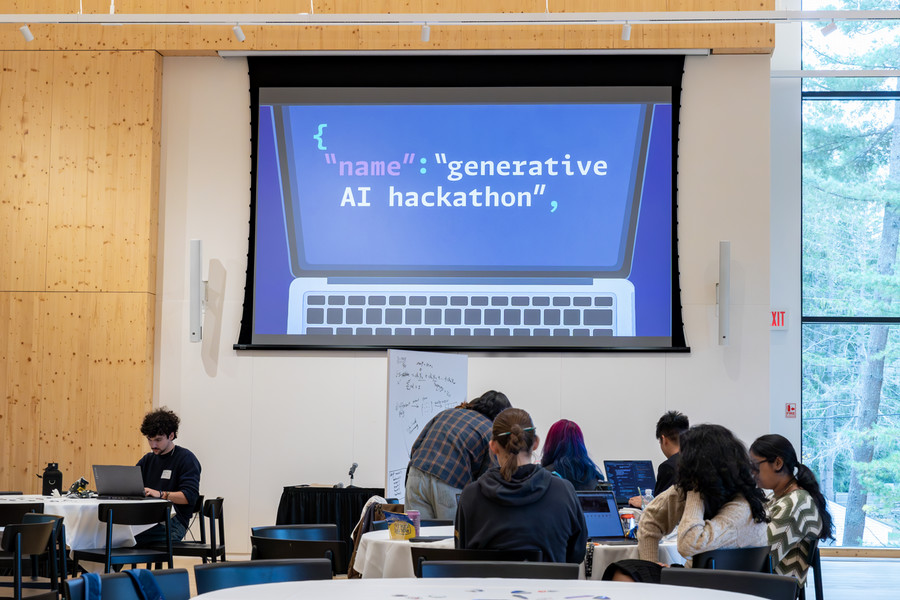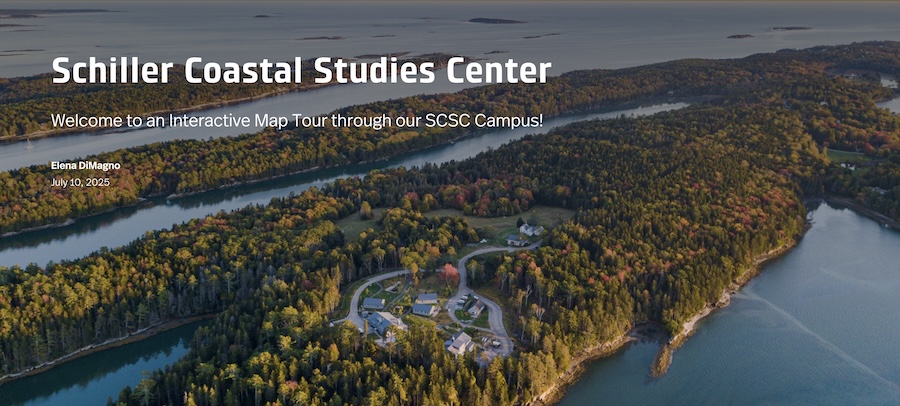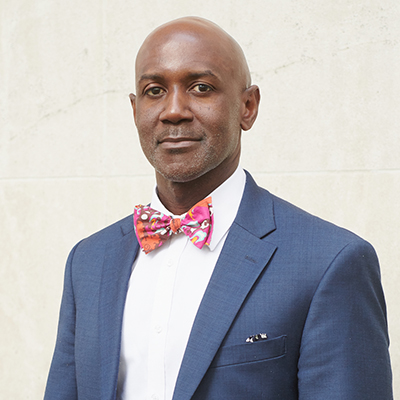One Year In, a New Diversity Fellowship is Already Impacting the Tech Industry
By Rebecca Goldfine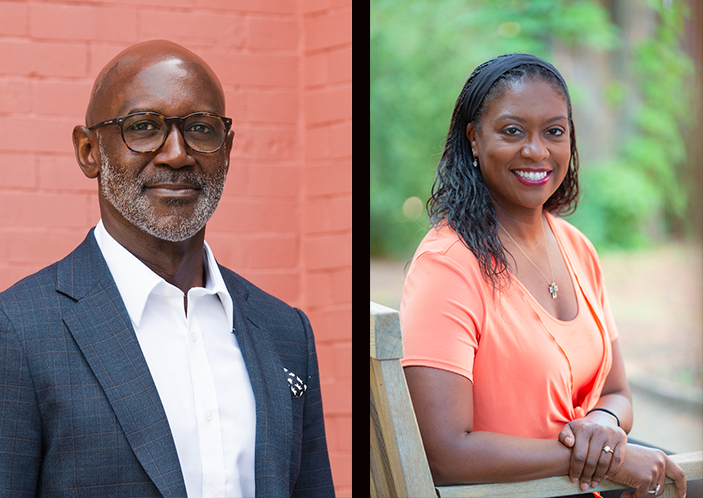
With Bowdoin's support, Michael Cato, the College's senior vice president and chief information officer, launched the Next Leaders Fellowship (NLF) in 2022 for tech professionals working at colleges and universities around the country.
Unique in the field of higher education information and technology, NLF offers professional development to mid-career IT specialists from historically excluded backgrounds. It aims to equip them with a network of peers and mentors—as well as new skills and experiences—so they feel better prepared to seek out senior leadership roles in the educational technology field.
The idea is that if more IT senior officers of color can serve as role models and mentors for younger generations of tech specialists, they can help build a sustainable pipeline in an industry that traditionally has not been very diverse.
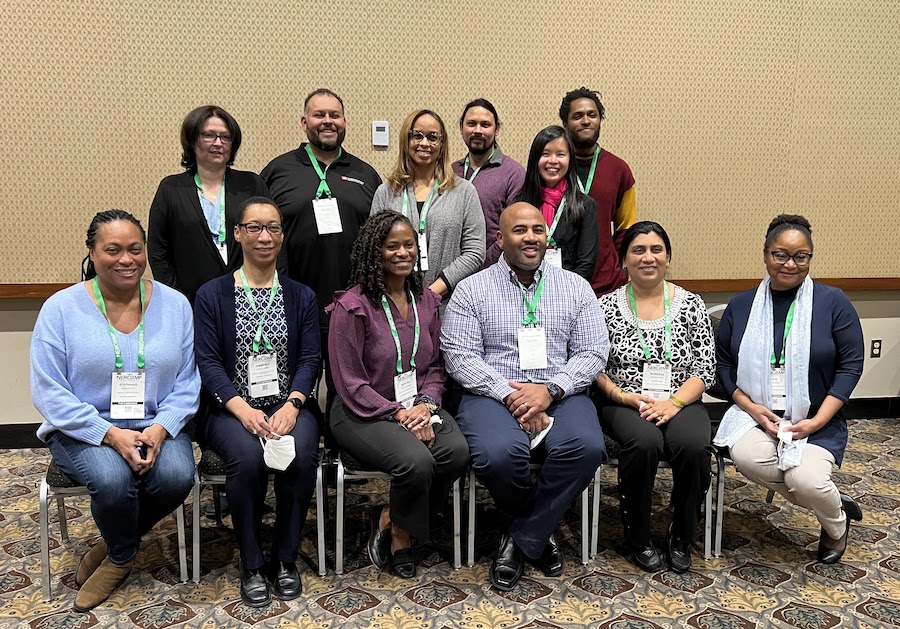
For the inaugural cohort, changes happened more quickly than expected. In the midst of the program, three fellows saw their careers take big jumps—one to chief technology officer at Trinity College, one to chief information officer at Queens University of Charlotte, and one to senior director of academic technology at California State University Maritime Academy. Additionally, job descriptions for two fellows were expanded, with both assuming more responsibilities.
NLF focuses on those kinds of results, shifting mindsets and working against social pressures that might discourage people of color or other marginalized workers from pursuing leadership positions.
NLF focuses on tangible career development skills, such as self-advocacy, resume polishing, and networking—as well as personal and professional growth. It offers mentorship, coaching, and a lot of conversation.
Each year, the program kicks off at the annual Northeast Regional Computing Program (NERCOMP) conference in March. Immediately following the conference, fellows engage in a two-day intensive career retreat, setting the tone for self-reflection and authentic, honest dialogue.
Participants meet virtually as a group once a month, as well as frequently convene online in smaller groups or pairs. They meet in person for a second time at a retreat at Amazon Web Service's headquarters in Seattle in the summer, and then for the final time at the annual EDUCAUSE conference in the fall.
NLF is free for fellows; all costs (flights, hotel, and food) to attend the two conferences and visit Amazon are covered. In addition, fees associated with a follow-up professional development program, to be completed after NLF, is paid for, including $1,000 toward travel.
While NLF's lead sponsor is Bowdoin, other sponsors include EDUCAUSE, NERCOMP, MOR Associates, and Next Generation Partners. Next year, Wesleyan University and Amherst, Hamilton, Pomona, and Swarthmore colleges will also be contributing funds.
"If you have worked in environments that have not celebrated you for a long time, and worse, you have not encountered people whose journey through life may mirror your own in some ways, you start to internalize the message that there is this thing you have to do to get there, and that it is not you," Cato said.
"The program helped me be in the room where things were happening."
In December, after the program had wrapped up, Cato gathered the 2022 fellows together virtually to hear their reflections on the experience. The conversation strayed from the topics one might expect IT experts to dwell on—like APIs, VPNs, clouds, and servers—and instead focused on wisdom gained, perspectives broadened, and ambitions sparked.
Faye Snowden, manager of the University of California Berkeley's technology program office, said the fellowship helped her see that she had not been "in the room where things were happening." To remedy this, NLF "helped me understand how to get into those rooms behind closed doors where decisions were being made about placing people in leadership positions," she added.
Kenitra Horsely, who was promoted last year to CIO of Queens University of Charlotte, said she got much more from the program than she had anticipated. NLF, she continued, "gave me tools that have enabled me to elevate my career and elevate my confidence to step into new roles and responsibility and to definitely be seen."
Roweena Carlos, assistant CIO at New Jersey Institute of Technology, said NLF inspired her to imagine possibilities beyond her day-to-day circumstances. "It allowed us to dream," she said.
Just the act of participating in the program served as a signal to others his seriousness about his career, said James Johnson, director of educational technology at St. Mary's College of California. "It got rid of a burden on me because I was not sure how to communicate around this topic."
Felix Zuñiga, campus engagement partner for California State University, agreed. "Being part of the fellowship signals to your organization that you are open to new opportunities, growth opportunities," he said.
Others talked about how they appreciated the camaraderie of the program, both with mentors and fellows. "It was almost overwhelming. In a good way!" said Stephanie Cox, who in the past year was promoted from manager of the office of the vice president and technology at Indiana University to CTO at Trinity College in Connecticut. "We know how difficult and lonely our journeys have been, and it does not have to be that way."
In the twenty-seven years she's worked in the field, Cox said she still rarely sees other people of color at a technical event or meeting. "Nothing compares to this feeling of connectedness that I knew was missing in my professional career," she said. "I would advocate and evangelize for the NLF program all day, it means that much to me."
